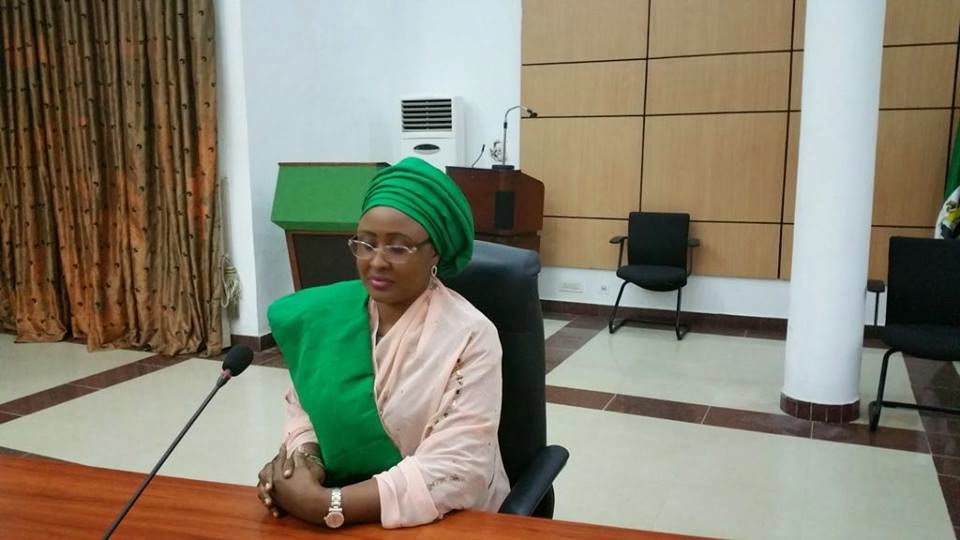The arrest of some judges and justices of courts in Nigeria in October 2016 by the Department of State Security Service/State Security Service (DSS/SSS) and the searches of their premises and recovery of alleged proceeds of corruption have raised critical questions. These are worthy of exploration by members of the legal profession especially when personalities such as the President, Nigerian Bar Association, are describing the action as “unconstitutional” and “blatant attempt to intimidate the judiciary and the legal profession.” (Statement issued by A. B. Mahmoud, SAN, at a Press Conference held by the NBA at Eko Hotel, Victoria Island, Lagos, October 8, 2016.) It is important to explore whether the search and arrest were made within the ambit of the Law.
Rather than a lengthy academic exposé, this opinion focuses, mainly, on the relevant provisions of extant procedural laws that govern searches and arrest in Nigeria and answers some frequently asked questions (FAQs).
In doing so, distinction is made between the provisions of the Administration of Criminal Justice Act 2015 (ACJA), applicable to all Federal Courts and courts in the Federal Capital Territory (FCT), and (because some states are yet to domesticate the ACJA), the States laws.
It is worthy of note that, Rivers State, one of the States in which such arrests were attempted/made, has, by the Rivers State Administration of Criminal Justice Law No. 7 of 2015, domesticated, in similar terms, the ACJA. Any reference to sections of the ACJA also refers to similar sections in the Rivers State Administration of Criminal Justice Law No. 7 of 2015.
Advertisement
For the purpose of States where ACJA has not been domesticated, recourse is made, as example, to the Criminal Procedure Code Law Cap. C41 Laws of Sokoto State 1996 (Criminal Procedure Code) and Criminal Procedure Law of Bendel State Cap. 49, 1976 (Criminal Procedure Law), applicable to the present Edo and Delta States; the regional Acts Criminal Procedure Act Cap. C41 LFN 2004, and Criminal Procedure (Northern States) Act Cap. C42 LFN having been repealed by section 493 ACJA). The distinction is also important because this is a continuous exercise that will most likely traverse the length and breadth of the country.
Sub-heads coined as questions are provided for ease of reference.
Who issues a search warrant?
Advertisement
Section 143 of ACJA provides that a court or Justice of the Peace may issue a search warrant at any time authorising “an officer of the court, member of the police force, or any other person named” to search such building, ship, carriage, receptacle, motor vehicle, aircraft, etc.
Under the Criminal Procedure Law, section 109, it is a Magistrate who issues a search warrant; under section 75 of the Criminal Procedure Code, a search warrant is issued by a court or a Justice of the Peace. By section 107 (1) of the Criminal Procedure Law, where the magistrate is satisfied by information upon oath and in writing that there is reasonable ground for believing that there is in Bendel State in any building, ship, carriage, receptacle or place anything upon or in respect of which any offence has been or is suspected to have been committed; or anything which there is reasonable ground for believing will afford evidence as to the commission of any offence; or anything which there is reasonable ground for believing is intended to be used for the purpose of committing any offence, the magistrate may at any time issue a warrant, called a search warrant, authorising an officer of the court, member of the police force, or other person therein named to search such building, ship, carriage, receptacle or place for any such thing, and to seize and carry such thing before the magistrate issuing the search warrant or some other magistrate to be dealt with according to law and to apprehend the occupier of the house or place where the thing was found if the magistrate thinks fit so to direct on the warrant. “
A search warrant issued “shall remain in force until it is executed or cancelled by the court which issued it.” See section146 (2).
By the provisions of section 147 ACJA, “A search warrant may be directed to one or more persons and, where directed to more than one, it may be executed by all or by one or more of them.”
Advertisement
When and how can search and arrest warrants be executed?
By section 148 ACJA, “A search warrant may be issued and executed at any time on any day, including a Sunday and public holiday.”
On how the search should be conducted, section 149 ACJA provides that “(1) Where any building or other thing or place liable to search is closed, a person residing in or being in charge of the building, thing or place shall, on demand of the police officer or other person executing the search warrant, allow him free and unhindered access to it and afford all reasonable facilities for its search.
(2) Where access into the building, thing or place cannot be so obtained, the police officer or other person executing the search warrant may proceed in the manner prescribed by sections 9, 10, 12 and 13 of this Act.”
Advertisement
Sections 9, 10, 12 and 13 relate to the use of force in the search of a person arrested; inventory of items recovered in the search; entry of premises where a suspect to be arrested has entered into; and breaking open of any outer or inner door or window of any house or place whether that of the suspect to be arrested or any other person or otherwise effect entry into such house or place. These provisions are similar to the provisions of sections 7 and 112 of the Criminal Procedure Law.
By section 111 of the Criminal Procedure Law, a search warrant may be issued and executed on any day including a Sunday or public holiday. It shall however be executed between the hours of five (5) o’clock in the forenoon and eight (8) o’clock at night but the court may, in its discretion, authorise by the warrant the execution of the warrant at any hour. Where the court authorises the execution of a search warrant at any hour other than between the hours of 5 o’clock in the forenoon and 8 o’clock at night, such authorisation may be contained in the warrant at the time of issue or may be endorsed thereon by any magistrate at any time thereafter prior to its execution.
Advertisement
On the execution of an arrest warrant, section 43 (1) ACJA provides that “A warrant of arrest may be executed on any day, including a public holiday.”
Who issues a warrant of arrest?
Advertisement
By section 36 (1) (c) ACJA, a warrant of arrest is issued by a Judge or a Magistrate. A warrant of arrest may be issued on any day, including a Sunday or public holiday. See section 38 ACJA.
Under the Criminal Procedure Code Law Cap. 41 Laws of Sokoto State of Nigeria 1996, Magistrates and Justices of the Peace have the power to issue warrants of arrest. See section 56 of the Law.
Advertisement
Can arrest be effected in the absence of an arrest warrant?
Section 44 provides that “A warrant of arrest may be executed notwithstanding that it is not in the possession at the time of the person executing the warrant but the warrant shall, on the demand of the suspect, be shown to him as soon as practicable after his arrest.”
By section 18 (1) (d) and (j) ACJA, a police officer may, without an order of court and without warrant, arrest a suspect in whose possession anything is found which may reasonably be suspected to be stolen property or who may reasonably be suspected of having committed an offence with reference to the thing; or for whose arrest a warrant has been issued or whom he is directed to arrest by a Judge, Magistrate, Justice of the Peace or superior police officer.
Section 10 of the Criminal Procedure Law contains similar provisions. It provides that:
“Any police officer may, without an order from a magistrate and without a warrant, arrest (1) any person whom he suspects upon reasonable grounds of having committed an indictable offence against a Federal law or against the law of Bendel State or against the law of any other State unless the written law creating the offence provides that the offender cannot be arrested without a warrant; (3) any person in whose possession anything is found which may reasonably be suspected to be stolen property or who may reasonably be suspected of having committed an offence with reference to such thing;
Who can execute search and arrest warrants?
One of the arguments in the polity today is that the arrest of the Judges/Justices ought to have been carried out by the Nigeria Police rather than the DSS. This argument is premised on the provisions of section 4 of the Police Act 1967 (Police Act), which outlines the general duties of the Police to include “the prevention and detection of crime, the apprehension of offenders.”
To hold such view without having recourse to the provisions of other laws will be to unproductive. The question to ask here is: who is a police officer? The answer to this lies not only in the Police Act, but also in other extant laws such as the ACJA, the EFCC Act 2004, and the ICPC Act 2000.
Whereas section 2 of the Police Act defines Police Officer as “any member of the Force,” the ACJA defines Police Officer to include “any member of the Nigeria Police established by the Police Act or where the context so admits, shall include any officer of any law enforcement agency established by an Act of the National Assembly.” Section 2 of the Criminal Procedure Law also defines “police officer” to include any member of the police force established by the Police Act
In the EFCC Act, the powers of the staff of the Commission are equated to the powers of the police in the area of investigation of offences. Section 8 (4) of the Act provides that all officers of the Commission involved in the enforcement of the provisions of the Act “shall have the same powers, authorities, privileges (including power to bear arms) as are given by law to members of the Nigerian Police.” Similar provision is contained in the ICPC Act where by section 5 (1) it provides that “…. an officer of the Commission when investigating or prosecuting a case of corruption, shall have all the powers and immunities of a police officer under the Police Act and any other laws conferring power on the Police, or empowering and protecting law enforcement agents.”
The bone of contention in the public discourse hinge on whether the DSS has the power to undertake the operations it undertook in relation to the arrested judges/justices. To determine whether the action of the DSS was intra or ultra-vires it is important to consider the mandate of the DSS as enshrined under the law. By section 2 (3) of the National Security Agencies Act 1986, Cap. 278 LFN 1990, the State Security Service is charged with responsibility for –
“(a) the prevention and detection within Nigeria of any crime against the internal security of Nigeria;
(b) the protection and preservation of all non-military classified matters concerning the internal security of Nigeria; and
(c) such other responsibilities affecting internal security within Nigeria as the National Assembly or the President, as the case may be, may deem necessary.”
Pursuant to section 2 (3) (c)), Presidential Proclamation; Instrument No. SSS1 of 23rd May 1999 (the Instrument) was issued to expand the mandate of the DSS to include prevention, detection and investigation of, inter alia, economic crimes of national security dimension and threats to law and order. See paragraph 2 (1) (i) (d) and (g) of the Instrument.
In the discharge of their responsibilities as they relate to searches and arrests, staff of DSS are conferred with the powers of Superior Police Officers. Paragraph 3 (1) of the Instrument provides that: “For the purpose of facilitating the discharge of its functions under this Instrument, personnel of the State Security Service are hereby conferred with the powers of a Superior Police Officer in respect of searches and arrests.”
There is the argument that, because section 214 of the Constitution of the Federal Republic of Nigeria 1999 (as amended) (the Constitution) stipulates that no other police force shall be established for the Federation, no agency should be regarded as having similar force as the Nigeria police. For clarity, the provision of section 214 of the Constitution is reproduced verbatim:
“214 (1) There shall be a Police Force for Nigeria, which shall be called the Nigeria Police Force and, subject to the provisions of this section no other police force shall be established for the Federation or any part thereof.
(2) Subject to the provisions of this Constitution—
(a) the Nigeria Police Force shall be organised and administered in accordance with such provisions as may be prescribed by an Act of the National Assembly;
(b) the members of the Nigeria Police Force shall have such powers and duties as may be conferred upon them by law.
(c) the National Assembly may make provisions for branches of the Nigeria Police Force forming part of the armed forces of the Federation or for the protection of harbours, waterways, railways and air fields.”
The clear purport of the provision, particularly subsection (1), is to preclude the establishment of another parallel police force, hence the phrase “no other police force shall be established for the Federation.” Neither this subsection nor any other section of the Constitution precludes the establishment of other law enforcement or security agencies in the country. This is why several references are made in the Constitution to other Government security services or agencies established by law. On this, see, for example sections 39 (3) (b), and 318 (1) (h); item 45 of the Exclusive Legislative List, Part I, Second Schedule; paragraph 8 (a), Part I, Third Schedule; and paragraph 9, Part II, Fifth Schedule.
In fact, the Constitution has categorically declared as sacrosanct the provisions of the National Security Agencies Act, which establishes the DSS/SSS and outlines its mandates and responsibilities.
Section 315 (3) of the Constitution provides that:
“Nothing in this Constitution shall invalidate the following enactments, that is to say (3) the National Security Agencies Act and the provisions of those enactments shall continue to apply and have full effect in accordance with their tenor and to the like extent as any other provisions forming part of this Constitution and shall not be altered or repealed except in accordance with the provisions of section 9 (2) of this Constitution.”
Section 149 ACJA is crystal clear that any person in whose name a search warrant is issued can execute the search. Also section 40 ACJA has conferred on the court the power to issue warrant of arrest to any other person as the court may decide. The section provides that:
“(1) A court issuing a warrant of arrest may, where its immediate execution is necessary and no police officer is immediately available, direct it to some other person or persons and the person or persons shall execute the same.
(2) A person, when executing a warrant of arrest directed to him, shall have all the powers, rights, privileges and protection given to or afforded by law to a police officer executing a warrant of arrest and shall conform with the requirement placed by law on a police office.”
It has already been settled that in the conduct of searches and arrests, staff of DSS are conferred with the powers of Superior Police Officers. Reference to police officers in any law in Nigeria, in relation to searches and arrests, also refer to staff of DSS.
Are judges/justices immune from arrest/prosecution?
Section 308 of the Constitution confers immunity from civil and criminal proceedings (within the set limits) on the President, Vice President, Governors and Deputy Governors. No other person, to my knowledge, in the executive, legislature or judiciary, enjoys similar cover.
Is disciplinary proceeding by the National Judicial Council (NJC/council) a mandatory precursor to criminal proceedings in allegations of corruption against judges/justices?
By the combined effect of sections 153 (1) (i), 158, 160 and 292 and paragraph 21, part I, Third Schedule of the Constitution, the NJC is an independent body that is not subject to the direction or control of any other authority or person and that makes rules to regulate the discharge of its functions. The Council, inter alia, exercises disciplinary control over judicial officers.
NJC is not a court; it is not a law enforcement agency. The functions of the Council are limited, in relation to misconduct by judicial officers, to internal administrative inquiry and recommendation of appropriate punishment of erring officer to the President or the Governor, as the case may be.
The disciplinary procedure by the Council cannot forestall any investigation that aims to uncover facts about allegations bordering on commission of crime by a judicial officer. Neither can criminal investigation stop the Council from discharging its constitutional duty to discipline its officers. The two processes can be sustained independent of each other.
Arguments are proffered on the propriety of a serving Judge/Justice being tried by his/her peers without first being removed from his/her position. There is no law that invalidates the trial of a Judge/Justice merely because he/she is still serving. Moreover, where such Judge/Justice is cleared of all wrong doing by the justice system, no law precludes him/her from returning to his/her duty post.
Conclusion
From the foregoing examination of the laws, the actions of the DSS in the arrest and search of the premises of Judges and Justices can be placed firmly within the ambit of the law, sentimental and emotional considerations notwithstanding.
It is pertinent to note that Nigeria is not the first country to investigate and prosecute Judges that are suspected of commission of acts of crime. The Federal Bureau of Investigation (FBI) in the United States of America (a body similar to DSS) has at various times, prominently in January 2013, May 2014, and November 2015 arrested a number of Judges for bribery, corruption and other similar offences; subjected the Judges to trial at the end of which the convicted Judges were imprisoned. Nearer to home, neighbours like Ghana and Kenya had also cleansed their respective judiciaries through investigation and prosecution of Judges suspected of commission of corruption.
These countries’ experiences are shared for comparative purposes only because the actions taken in those countries were guided by their respective laws, which are only of persuasive application in Nigeria.






